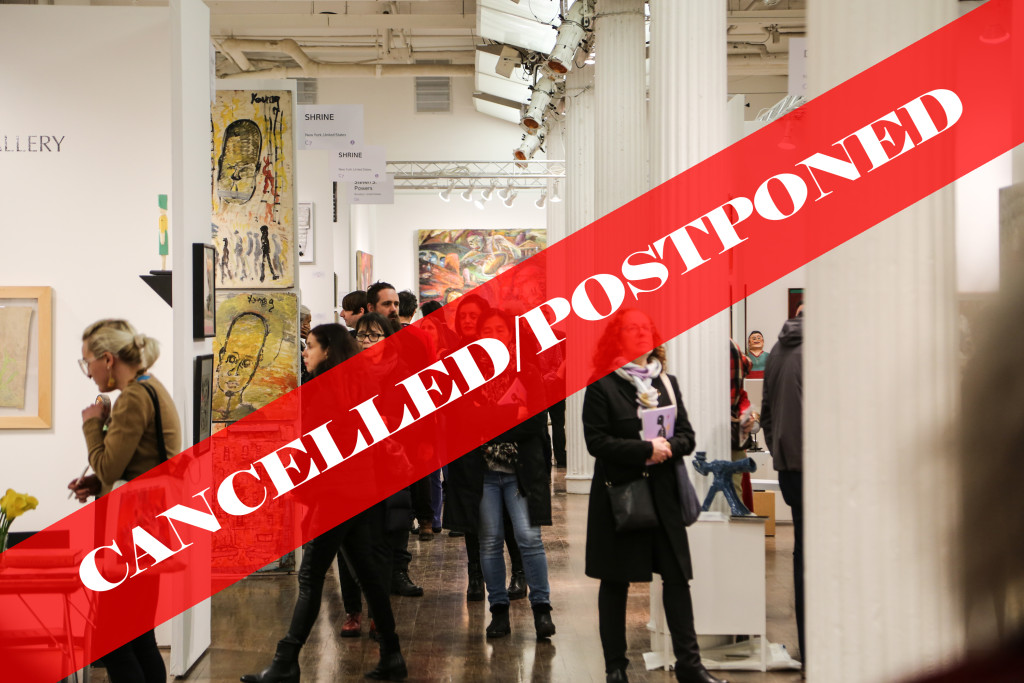The Philadelphia Show and the Spring Round Top Antiques Fair are the latest shows to cancel amid the shutdowns mandated by state governments across the United States. Currently, without a standard universal Federal ban on gatherings of individuals over a specific size, certain states have started to impose differing numbers that range from 50-500 people. That number is tightening by the day. In states that have not imposed gathering bans, some antiques show managers are closing in foresight of a poor turnout due to health concerns as coronavirus cases increase across the country. Shows between now and the end of May are cancelling by the hour.
According to career antiques dealers, this kind of stand-still has happened only twice before in the United States: with the terrorist attacks on September 11, 2001 and the financial collapse in 2008. But never have we witnessed every single antiques show in the nation close doors for a period of time.
Dealers, at least those who rely on these shows as a primary venue for sales, face an uncertain month ahead, and many have taken to online forums to talk through their anxieties. A solution regularly brought up is that professionals should use this time to get up to speed on their inventory. To do research, photograph, catalog and update their own websites and online selling platforms, then to use social media and other marketing avenues to reach their collectors who are isolating. Bring the show to them.
Some dealers who are sitting on cash reserves might see this as a time of opportunity — buy while the prices are down. Americana dealer David Schorsch posted to an online forum with his experience listening to the mid-Twentieth Century Americana dealers who made it through the war years like the Sacks, Mary Allis, Ben and Cora Ginsburg and others. “While hard times forced many dealers and ‘millionaire’ collectors to sell at bargain prices, there were a few sharp buyers with hard cash that had faith in the material and confidence in their judgement,” he said. “The most well-known was Joe Kindig, who bought heavily during this period, famously filling train cars with great stuff that he literally warehoused like vintage wine until a time in the future when he chose to sell at very handsome profits.”
For those who didn’t have a large reserve of cash, Schorsch noted another entrepreneur: dealer Harry Arons of Connecticut, who acted as a “de facto bank offering credit for a group of other dealers, creating a pool of liquidity that stimulated the market and kept many dealers thriving through those difficult days.”
Apart from isolated customers, the stock market and the larger economy presents another challenge: will folks buy in an economic crisis with the market so volatile? This awaits to be seen, but there are slivers of hope. Some spectacular results were found at auctions this past weekend. People still like the stuff — that will never go away. A look ahead to normalcy, even if it’s at least two months away, offers some perspective that this may be a finite, though intense situation.
While some auctions are eyeing their online platforms to make it through, others are postponing sales. Christie’s and Phillips in New York City have shuttered doors and suspended sales for the next six weeks. Many regional houses are enacting a preview-by-appointment-only/bid-online-only model. This segment of the market — auction houses that have already developed an online-only sale schedule and familiarized their bidders with that process — seems to be the most insulated. Small auction houses that do not feature internet bidding are postponing sales through the end of the month at minimum.
Museums are shuttering doors across the United States and some exhibitions planned for the summer have been bumped out to future dates. But several of the world’s most famous museums are offering “virtual” tours to allow people the opportunity to see exhibitions that are currently unavailable to visitors. A short list includes the British Museum, London (www.britishmuseum.org); the Guggenheim Museum, New York City (www.guggenheim.org); the National Gallery of Art, Washington, DC (www.nga.gov); Musée d’Orsay, Paris (www.musee-orsay.fr); National Museum of Modern & Contemporary Art, Seoul, South Korea (www.mmca.go.kr); Pergamon Museum, Berlin (www.smb.museum); Van Gogh Museum, Amsterdam, The Netherlands (www.vangoghmuseum.nl); Rijksmuseum, Amsterdam, The Netherlands (www.rijksmuseum.nl); Uffizi Gallery, Florence, Italy (www.uffizi.it); The Metropolitan Museum of Art, New York City (www.metmuseum.org); State Hermitage Museum, St Petersburg, Russia (www.hermitagemuseum.org); Louvre Museum (www.louvre.fr); and Neue Galerie, New York City (www.neuegalerie.org).
To see the running list of antiques and art show, auction and event cancellations, click here.





